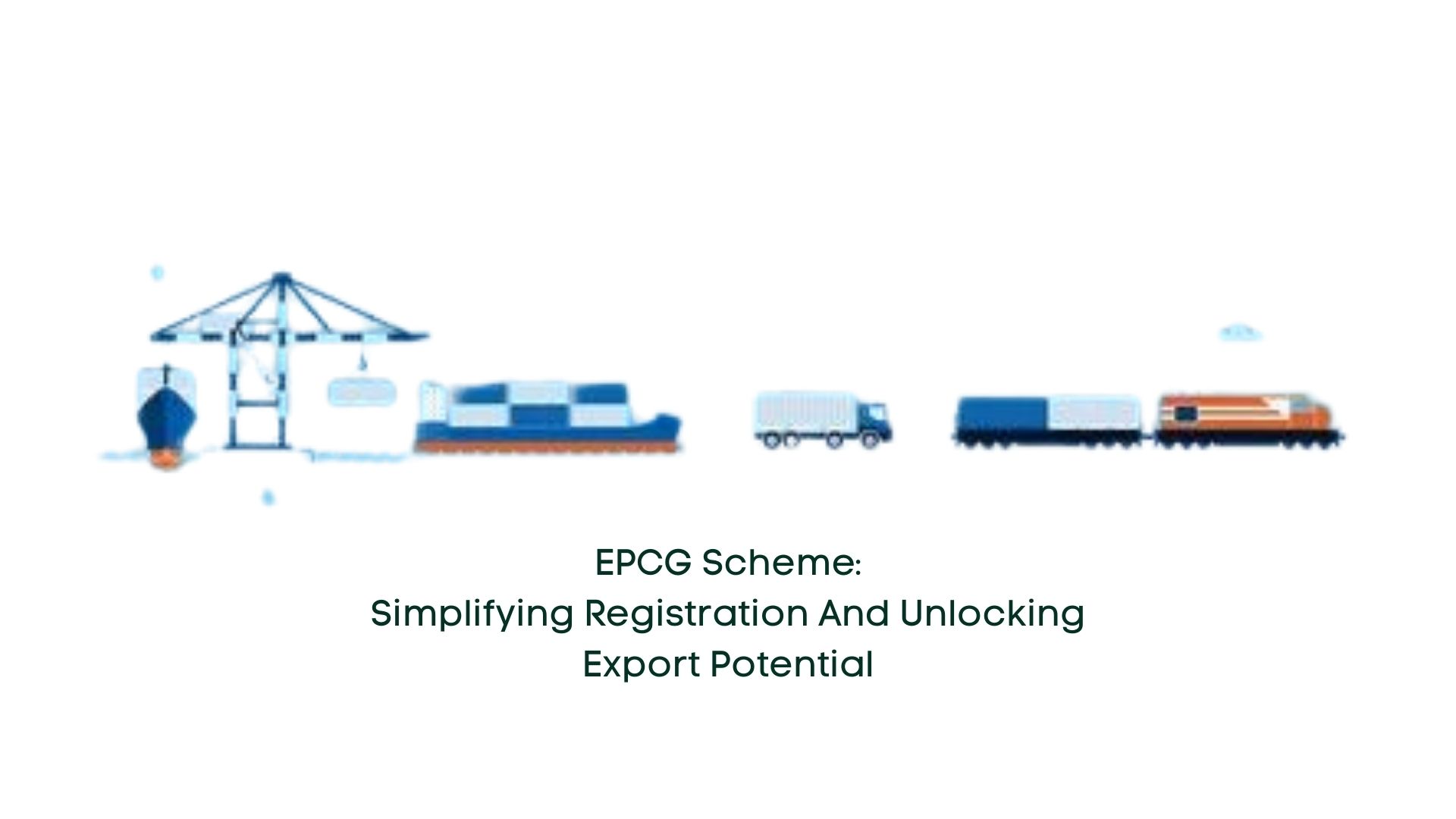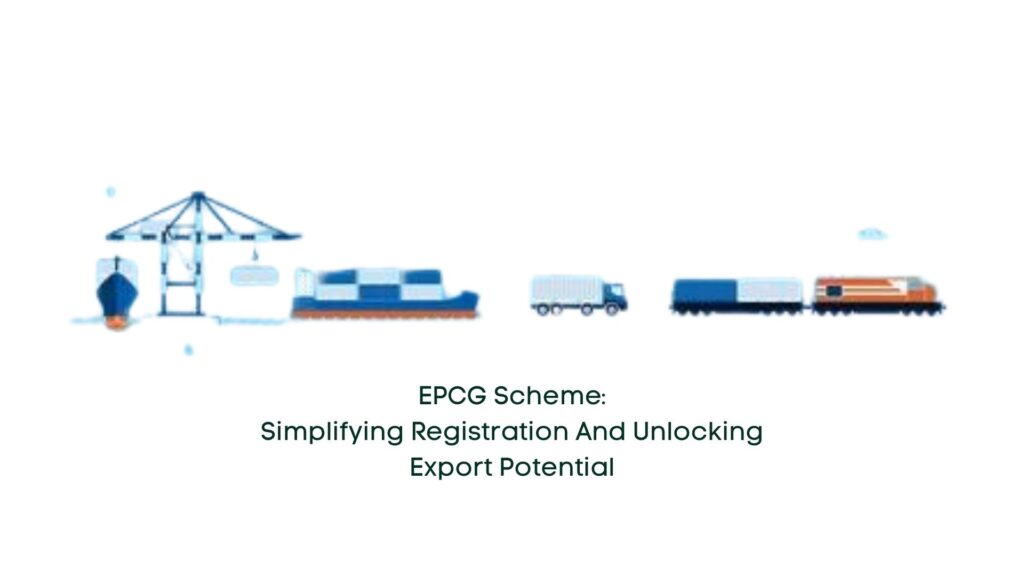
02 Mar EPCG Scheme: Simplifying Registration and Unlocking Export Potential

Understanding the EPCG Scheme:
The EPCG Scheme empowers eligible importers, particularly export-oriented enterprises, to import capital goods at zero customs duty rates. However, to avail of this benefit, businesses must ensure an export value equivalent to six times the duty saved on the imported capital goods within six years from the issuance of the authorization.
Export Promotion Capital Goods (EPCG):
These are capital goods utilized in the production of goods destined for export markets. Machinery and spares fall under this category, emphasizing the need for exporting goods manufactured in India to qualify for EPCG benefits.
Eligible Capital Goods under EPCG:
The EPCG Scheme encompasses a wide range of capital goods, including spares, fixtures, tools, and even second-hand machinery without age restrictions. This facilitates technological upgradation within domestic industries, fostering competitiveness on a global scale.
EPCG License Application:
Obtaining an EPCG License necessitates filing an application with the Director General of Foreign Trade (DGFT) along with requisite documents, including Import Export Code (IEC), Registration cum Membership Certificate (RCMC), digital signature, and other relevant certificates.
Export Obligations under EPCG:
Importers under the EPCG Scheme must fulfill export obligations equivalent to six times the duty saved within six years from the authorization issuance date. Failure to meet these obligations may result in the payment of customs duties along with accrued interest.
Key Considerations and Penalties:
Extensions on time limits for meeting export obligations are available under exceptional circumstances. Non-compliance may lead to penalties, including payment of customs dues and interest. Selling goods in the Domestic Tariff Area (DTA) is only permissible after fulfilling export obligations.
Exemptions and Relief Measures:
In the GST regime, the EPCG Scheme offers relief to exporters by exempting IGST and Compensation Cess. Such measures alleviate the burden on exporters and streamline trade operations.
Historical Case:
A case involving ABC Inc. highlighted the importance of complying with EPCG regulations. Non-compliance led to penalties, including confiscation of imported capital goods and repayment of customs duties.
Conclusion:
While the EPCG Scheme presents lucrative opportunities for exporters, adherence to regulations and careful planning are paramount. Businesses must evaluate their export potential and obligations before committing to the scheme to avoid penalties and ensure sustainable growth.


No Comments